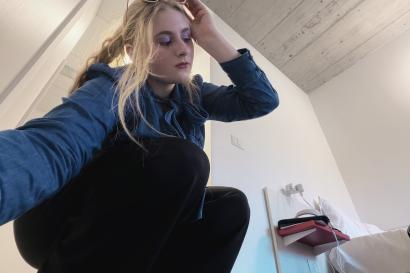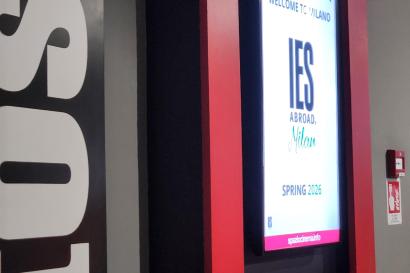Hellooo! If you read my last blog then welcome back. If not, then I’m still happy you’re here :) Today is my first day of classes and my fifth day in Madrid. Since I just got here and the traveling experience is fresh on my mind I figured I’d talk about that, and what my first few days have been like.
Let’s start with the day before/day of trip. The day before of course is gonna be a little crazy because you wanna make sure you’re not forgetting anything but also not over packing but also what if you need that one thing that takes up SO MUCH room??? Here’s my thoughts on what to pack and what not to pack. First we have to consider where you stand in terms of financial budget.
Personally, my budget is on the lower side so if you’re like me I’d say to bring as much as you can! You don’t wanna have to spend money right when you get to your study abroad country so bring everything you need. A lot of study abroad sites recommend to pack very light and to leave a lot of room for stuff you buy while abroad which is fair—if you have the money to buy that much stuff. My strategy was to bring toiletries and packing pretty much all the clothes and things I would need, because that way you don’t have to worry about buying a bunch of stuff when you get to your country but also since you have toiletries that you’ll use while abroad, that means you’ll have room for some stuff to bring back!
If your budget is on the higher side and you have no reservations about spending money while abroad, first of all, amaaazinnnng! Definitely take advantage of that and buy as much foreign stuff as possible. In your case packing light and leaving a lot of room for new bought things is the way to go. Only bring what you must, and buy a lot of things abroad that you can bring home. Of course spending on food is also a huge part of the experience, but the items you buy and bring home are the ones you’re gonna keep and be able to “relive” your experience through.
Ok, so now you’re packed. Next is the actual trip! The flight obviously depends on where you’re going and where you’re coming from. I’m gonna say on average maybe your flight will be around 10 hours. Check what time you’ll be landing so you know whether you need to sleep or stay awake during your flight. If you can start adjusting to your study abroad time zone ahead of time even better. Most airlines will provide a small pillow and blanket but if you have one that is especially comfortable or reminds you of home I’d recommend bringing it with you. The flight itself isn’t too bad since you’ll be at a very high altitude, so if you need to sleep it should be a smooth flight. If you need to stay awake, then make sure you have some good movies and/or shows downloaded—most airlines also have free entertainment though.
Now you’ve made it to your study abroad country!! Excitinnnng but also stressfulllll. In some cases you might not even understand the language at all which can be overwhelming. I’d recommend keeping all your necessary documents readily available. There might be several checkpoints where you’ll need to show your passport, visa, etc. There are usually universal symbols for things like exits and bathrooms so look for those. A lot of airport employees also speak English since it’s a huge tourist language, so if you need anything then airport staff might be a good bet.
Once you get your stuff and arrive at your new home then you’ll have IES Abroad staff there to help you for anything so at this point you’re good and are done with the most stressful part of your study abroad experience. Initially you might have to go and buy some things if you didn’t pack them with you, or if you have a kitchen instead of a meal plan you might want to get some groceries—especially for my low budget friends out there who don’t necessarily want to eat out for every meal. You’ll also want to get a SIM card or some type of access to phone service as soon as possible because it’ll be so useful during your first days to navigate and get you around until you’re more familiar with the area. After you’re done settling in then you can get to enjoying your time and exploring!
Hope this helps you prepare a little for your study abroad experience. In my personal experience we’ve had one field trip already to a city near Madrid, Segovia, and it was full of beautiful and breathtaking sights. I’ve also met so many nice and cool people I can’t even remember all their names. I’m pretty bad at remembering names, but still. This is to say that as an IES Abroad student I can almost guarantee you’ll have fun pretty much as soon as you get to your study abroad country, so don’t be afraid of new things and new people (:

Melanie Garza
Hi, I’m Melanie! I’m a senior at Carnegie Mellon University, majoring in Physics. After graduation, I plan on attending graduate school in pursuit of a Ph.D. in Physics. While I love STEM, I also love the arts! I’m part of an a cappella group, I’m in my school’s non-major orchestra as a violinist, I like to draw and paint, and I’ve dabbled in some dance too. It’s important for me to keep a balance between all my interests, which also include working out (at the gym only - I am NOT athletic, unfortunately) and outdoor activities that don’t involve swimming since that’s something I can’t do. I know, shame. I’m really looking forward to exploring all my hobbies and interests in the context of a new culture. I am fluent in Spanish since I was raised in Mexico so Spain will be full of possibilities!










